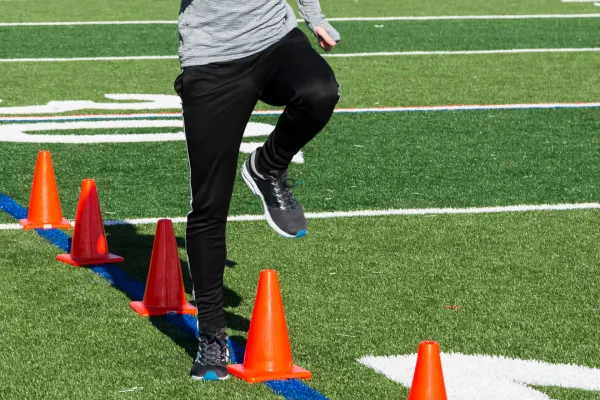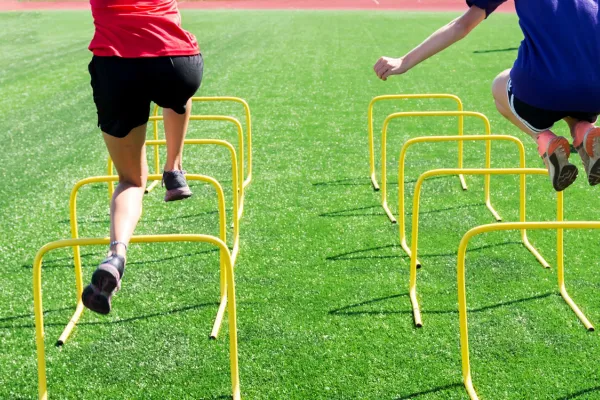
Coaching the Coaches: Investing in Those Who Invest in Girls
By The Coaching HER® Team – Evidence-based tips for building lasting engagement in girls’ sports Learn more at coachingher.com
Behind every thriving athlete is a coach who goes beyond drills and game plans. Great coaches shape character, inspire confidence, and open pathways for girls to grow both on and off the field. For sports leaders, recognizing and supporting these coaches isn’t just good practice, it's a long-term investment in the health of your program.
Why Recognition Matters
Research shows that girls often thrive when they feel a strong personal connection to their coach — a coach who understands them as individuals, not just as athletes (Lau, Chung, & Hwa, 2021). And, 80% of girls say a positive coach relationship is a top reason they keep playing (Aspen Institute Project Play, 2020). Coaches who create safe, inclusive environments help girls stay in sport longer and develop life skills they carry into adulthood.
Yet even the most dedicated coaches need encouragement and tools to continue growing. Public recognition of their efforts, access to meaningful professional development, and consistent feedback all help retain high-quality coaches and, by extension, the athletes they inspire.
Linking Education to Impact
Continuing education isn’t just a checkbox. It’s how coaches refine their ability to meet athletes’ evolving needs. Data shows that coaches who actively seek training in communication, relationship-building, and athlete-centered approaches are better equipped to keep athletes engaged and motivated.
The FM6: Supporting Girls’ Needs module, for example, gives coaches practical strategies to meet three psychological needs that keep girls engaged in sport:
Care — showing athletes they’re valued as whole people.
Competence — helping them feel capable and confident in their abilities.
Choice — giving them a voice in shaping their sport experience.
When leaders make education part of the organizational culture,it helps ensure coaches and athletes continue to grow.
Simple Ways Leaders Can Champion Coaches
Celebrate Milestones — Highlight coaching achievements in newsletters, social media, and award programs.
Example: Post a “Coach Spotlight” each month on your website or Facebook page, sharing one coach’s positive impact on athletes.
Invest in Training — Budget for professional development and make participation easy. (Coaching HER is free)
Example: Set aside a small fund to cover registration for clinics, workshops, or certifications and schedule them so coaches don’t have to miss practices.
Create Peer Networks — Facilitate spaces for coaches to share challenges, successes, and ideas.
Example: Dedicate 15 minutes at every coaches’ meeting for “Coaching HER Reflections” where coaches share one success or takeaway from training.
Model a Learning Culture — Show that everyone, from executives to first-year volunteers, is committed to improving
Example: Include a “What I Learned This Month” feature in staff emails where a leader shares insights from a recent class, certification, or conference.
Ask for Feedback — Let coaches know their perspectives matter in shaping policies and programs.
Example: Send out a short quarterly survey asking coaches what’s working, what’s not, and what support they need — and share how you acted on their input.
The Ripple Effect
When leaders champion their coaches, they’re not just building better teams — they’re shaping the environment where athletes can thrive. A coach who feels supported and valued is more likely to invest deeply in their athletes, innovate their methods, and stay committed to the program.
References
Aspen Institute Project Play (2020). Stay of Play Report 2020.
Lau, E. S., Chung, H. J., & Hwa, M. C. Y. (2020). Voices of Singapore national beach volleyball female athletes: What is an ideal coach? International Journal of Sports Science & Coaching, 15(5-6), 642–652. https://doi.org/10.1177/1747954120941304








